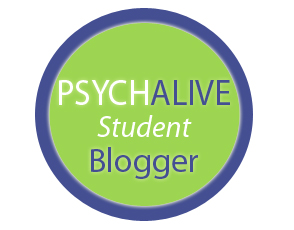The Search for a Better Life: How to “Live Well”

 In my experience of asking people what it means to live well, the answers I’ve received, while sharing some common threads, have been as varied as the individuals with whom I’ve spoken. I became interested in these questions during my time studying philosophy as an undergraduate. Philosophical inquiries into “living well” and how to do it have been contemplated for as long as human beings have had the capacity to reason. As a result of studying what the greatest philosophical minds had to say on this topic, I began my own inquiry into what I thought it meant to live well and how I ought to go about doing it.
In my experience of asking people what it means to live well, the answers I’ve received, while sharing some common threads, have been as varied as the individuals with whom I’ve spoken. I became interested in these questions during my time studying philosophy as an undergraduate. Philosophical inquiries into “living well” and how to do it have been contemplated for as long as human beings have had the capacity to reason. As a result of studying what the greatest philosophical minds had to say on this topic, I began my own inquiry into what I thought it meant to live well and how I ought to go about doing it.
Initially, the varied nature of my subjects’ responses left me puzzled. My first thought in trying to solve the riddle of this variation was that people were overly focused on the specific things that allowed them to live well rather than what it meant to do so. Despite being aware that living well most likely required a confluence of favorable mental and physical experiences, the knowledge I was seeking pertained specifically to what living well meant to the individual. Did these experiences manifest mentally, physically, or spiritually? Perhaps a combination was at play…
Whilst pursuing people’s opinions regarding what it meant to live well, I had hoped to find consistency in the responses of my subjects. My hope was that by discovering a consistent thread of human thought, I would be able to distill a common sentiment into a razor sharp definition (e.g. “Living well means being happy and reducing one’s pain to the greatest extent possible”). In one of my previous attempts at answering the question of what it meant to live well, I concluded that a life well lived was a life well understood. By achieving a comprehensive understanding of the patterns of life, I saw the potential to discover an order to the universe where actions and behaviors could be parsed into two distinct categories: those that led to good consequences and those that led to bad ones. The good ones, I thought, could be understood as those that tended to promote well-being and the bad ones tended to promote the inverse. Knowledge appeared as the path to the good life.
My honeymoon with knowledge as the “gatekeeper to the good life” ended once I realized the degree to which one would have to “know” in order to lead a “good life.” While human beings are adept at thinking rationally and putting rational thought into action, we lack the omniscience required to meet the criteria of my previous conception of “living well.” Whenever we act, we do not know with certainty how our actions will play out. To know ahead of time whether our actions will turn out desirably or not (a chief tenet of how I previously defined “living well”), perfect knowledge (i.e. knowledge of all physical laws including how all previous events both adhered to and transpired according to all relevant physical laws) is a necessity. As previously mentioned, human beings’ finite physical capacity prevents us from processing the amount of information necessary to live in a way where we would be assured that every action of ours would take on the exact result we were hoping for.
Having reached a crossroads in my quest to pinpoint the nature of the good life as well as how one might go about living it, I found myself questioning the coherence of how I was characterizing the “good life.” I also began to question whether or not the word “good” could ever be understood objectively (i.e. by all people in all contexts). In the same way that our understanding of what is “good” is contextual, I think it is advantageous to consider what is means to live well with the same subjectivity. John Stuart Mill, the preeminent 19th century ethical theorist states in his book Utilitarianism, “Actions are right in proportion as they tend to promote happiness, wrong as they tend to produce the reverse of happiness.” While living “well” might mean living a life whereby we aim to maximize personal happiness whilst also aiming to diminish our pain to the greatest extent possible, let us not see pain as an impediment to living well. There are two sides to every coin, and pain in the short term doesn’t necessarily preclude happiness in the long term. In fact, short-term pain is often a precursor to sustained happiness. Pain provides context for our triumphs and informs us about how to live better in the future. Perhaps we ought to understand that “living well” isn’t the precise science society tells us it is. Living well can and perhaps ought to be tinkered with. The context out of which we live our lives constantly changes, why shouldn’t our conception of how we can be happy and thrive? Despite what John Stuart Mill says, don’t view pain as the enemy to your ability to achieve happiness or live a good life! Pain is merely an informant; use it to your advantage.
Tags: good life, happiness, lifestyle, live your own life, quality of life









To live well, humans must know in the first place what a human being is, which unfortunately humanity has not realized yet. As a serious result, humans do not understand yet what happiness is despite so many explanations so far. I am trying to find who can share the new knowledge on human identity and nature. I am sending a message ‘Is happiness indispensable for human?’ to the well-known intellectuals in the philosophy and psychology area. This new knowledge requires a new scientific approach to understanding humans, which makes it difficult for the existing scholars to understand easily just because of their own inherent stereotypes on humans. If interested, I can send the same message and related attachments to you.